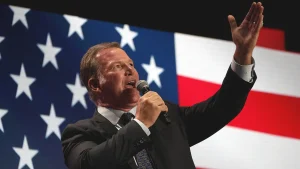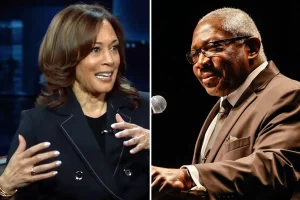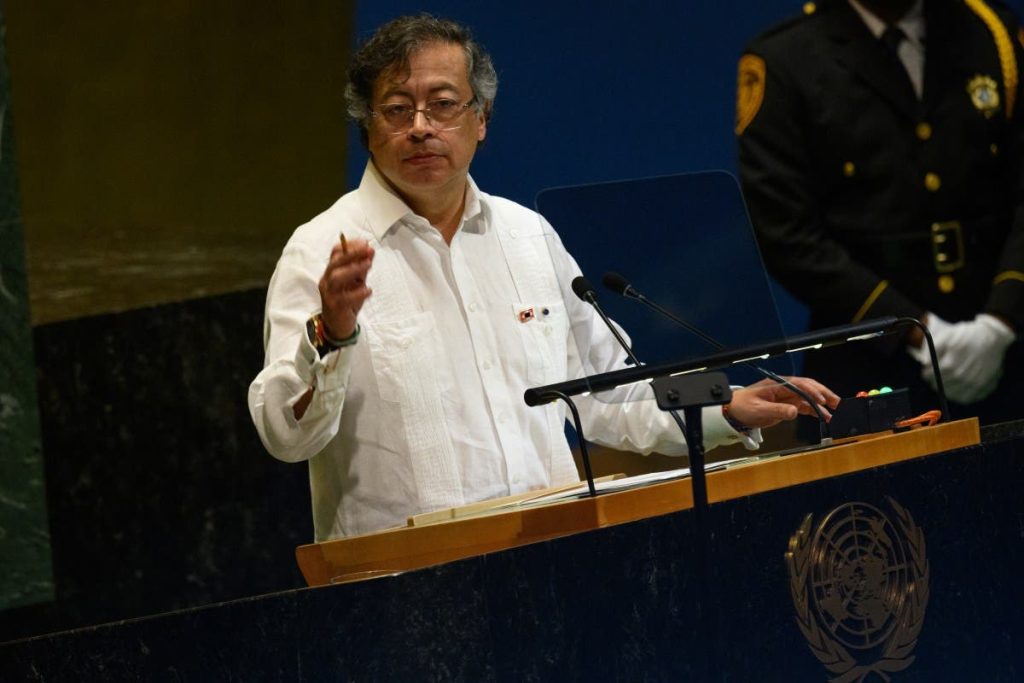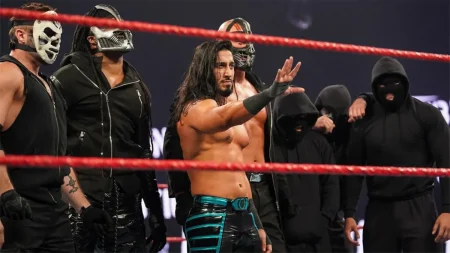Diplomatic Fallout: Colombia’s President Dismisses U.S. Visa Revocation
In a bold display of defiance, Colombian President Gustavo Petro responded with remarkable indifference to the Trump administration’s decision to revoke his U.S. visa. Following his attendance at the United Nations General Assembly, Petro took to social media platform X to declare, “I arrived in Bogotá. I no longer have a visa to travel to the USA. I don’t care.” This dismissive reaction comes after Petro made controversial remarks outside the UN headquarters, calling for U.S. soldiers to “disobey the orders of Trump” and instead “obey the orders of humanity.” The State Department swiftly responded by revoking his visa due to what they termed “reckless and incendiary actions” that urged American military personnel to disobey orders and potentially incite violence. This diplomatic incident marks a significant escalation in the already strained relationship between Washington and Bogotá, highlighting deeper divides over U.S. foreign policy, particularly concerning the Middle East and Latin America.
Petro’s response reveals a nuanced perspective on international mobility and identity. In his social media statement, the Colombian leader emphasized that he doesn’t merely require a visa but could potentially use an ESTA (Electronic System for Travel Authorization) through the U.S. visa waiver program, as he claims dual citizenship with a European country. “I’m not only a Colombian citizen but also a European citizen,” Petro stated, adding that he considers himself “a free person in the world” who believes in universal freedom. This framing attempts to diminish the significance of the U.S. action by suggesting alternative means of entry and a cosmopolitan identity that transcends national boundaries. The timing of the visa revocation has also raised questions, as Colombian media reported that Petro had already departed the United States when the State Department announced their decision, potentially reducing its immediate practical impact.
The roots of this diplomatic confrontation lie in Petro’s controversial remarks about Palestine while addressing supporters outside the UN headquarters in New York. In footage that circulated widely on social media, the Colombian president can be heard making a direct appeal to U.S. military personnel, urging them “not to point their rifles at humanity” and explicitly calling for disobedience to Trump’s orders. These statements crossed a red line for U.S. officials, who viewed them as an inappropriate attempt by a foreign leader to influence American military personnel against their commander-in-chief. The State Department’s swift and severe response—revoking Petro’s visa while he was still in the country for diplomatic engagements—demonstrates how seriously Washington took these remarks, considering them not merely critical of U.S. policy but potentially dangerous in encouraging military insubordination.
This incident doesn’t exist in isolation but represents the culmination of growing tensions between Petro and the Trump administration. Colombia has traditionally been one of Washington’s closest allies in Latin America, cooperating extensively on issues like drug trafficking, regional security, and countering leftist influence. However, Petro—Colombia’s first leftist president—has taken a notably different approach to these relationships, frequently criticizing U.S. policies and seeking to redefine Colombia’s role in the region. Previous clashes between Petro and Trump over migration policy and drug trafficking strategies had already created friction, with fundamental disagreements about approaches to these complex transnational issues. Petro’s administration has advocated for more socially-oriented solutions to drug production rather than militarized eradication efforts, while also taking more progressive stances on migration compared to Trump’s restrictive policies.
The visa revocation and subsequent exchange represent more than just personal friction between two leaders—they signal potential challenges for U.S.-Colombia relations moving forward. Colombia has been a cornerstone of U.S. strategy in South America for decades, receiving billions in security and development aid and serving as a counterbalance to leftist governments in the region. With Petro openly dismissing the significance of maintaining access to the United States and challenging Trump’s authority, the traditional alliance faces unprecedented strain. The Colombian president’s European citizenship claim and his framing of himself as “a free person in the world” also suggest an intention to diversify Colombia’s international relationships beyond its historical dependence on the United States, potentially seeking closer ties with European nations or other global partners.
Looking ahead, this diplomatic confrontation introduces significant uncertainty into the future of U.S.-Colombia relations, particularly if Trump returns to office. While Bogotá has long been a reliable Washington ally in a region where U.S. influence has waned, Petro’s administration appears willing to chart a more independent course even at the cost of traditional partnerships. The Colombian leader’s dismissive response to the visa revocation suggests he may be prepared to accept further consequences to maintain his outspoken criticisms of U.S. policies. For the United States, managing this relationship will require balancing responses to what it views as inappropriate interference while maintaining cooperation on issues of mutual interest. The incident highlights the personal nature of modern diplomacy in the social media age, where leaders can bypass traditional channels to directly exchange barbs, potentially accelerating deterioration in bilateral relations that might otherwise proceed more gradually through institutional channels.















